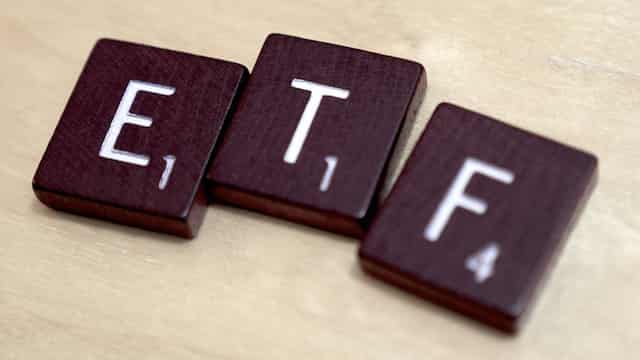JPMorgan BetaBuilders USD High Yield Corporate Bond ETFBBHY
BBHY
0
Funds holding %
of 7,419 funds
–
Analysts bullish %
Fund manager confidence
Based on 2024 Q4 regulatory disclosures by fund managers ($100M+ AUM)
100% more first-time investments, than exits
New positions opened: 20 | Existing positions closed: 10
6% more funds holding
Funds holding: 99 [Q3] → 105 (+6) [Q4]
0% more funds holding in top 10
Funds holding in top 10: 1 [Q3] → 1 (+0) [Q4]
3.56% less ownership
Funds ownership: 88.89% [Q3] → 85.33% (-3.56%) [Q4]
34% less capital invested
Capital invested by funds: $1.19B [Q3] → $786M (-$400M) [Q4]
34% less repeat investments, than reductions
Existing positions increased: 29 | Existing positions reduced: 44
Research analyst outlook
We haven’t received any recent analyst ratings for BBHY.
Financial journalist opinion
Positive
Seeking Alpha
3 months ago
BBHY: Simple High-Yield Corporate Bond ETF, Above-Average 7.0% Yield And Returns
JPMorgan BetaBuilders USD High Yield Corporate Bond ETF is a simple high-yield corporate bond ETF. It recently reduced its expense ratio from 0.15% to 0.07%, which piqued my interest. BBHY behaves exactly as expected from a high-yield bond ETF, without any significant advantages, disadvantages, or differences relative to peers.

Positive
Seeking Alpha
4 months ago
BBHY: JPMorgan's Take On The High Yield Market
JPMorgan Beta-Builders USD High Yield Corporate Bond ETF (BBHY) aims to replicate the ICE BofA US High Yield Index using a passive investment approach. BBHY holds over 1,400 individual securities, minimizing individual issuer risk with each issuer composing less than 0.5% of the fund. The fund's composition mirrors the high yield market: 50.5% BB names, 36% B names, and 13.5% CCC names.

Negative
Seeking Alpha
8 months ago
BBHY And The Junk Bond Dilemma
The market seems fearful of a recession, leading to sell-offs in junk bond ETFs like BBHY, but a quick recovery was seen this past week. Investors face a decision to invest in high-yield corporates or rotate into safer treasuries amidst economic uncertainty. Corporations holding large cash stockpiles may impact investment decisions, while default risks on high-yield corporates remain low for now.

Charts implemented using Lightweight Charts™